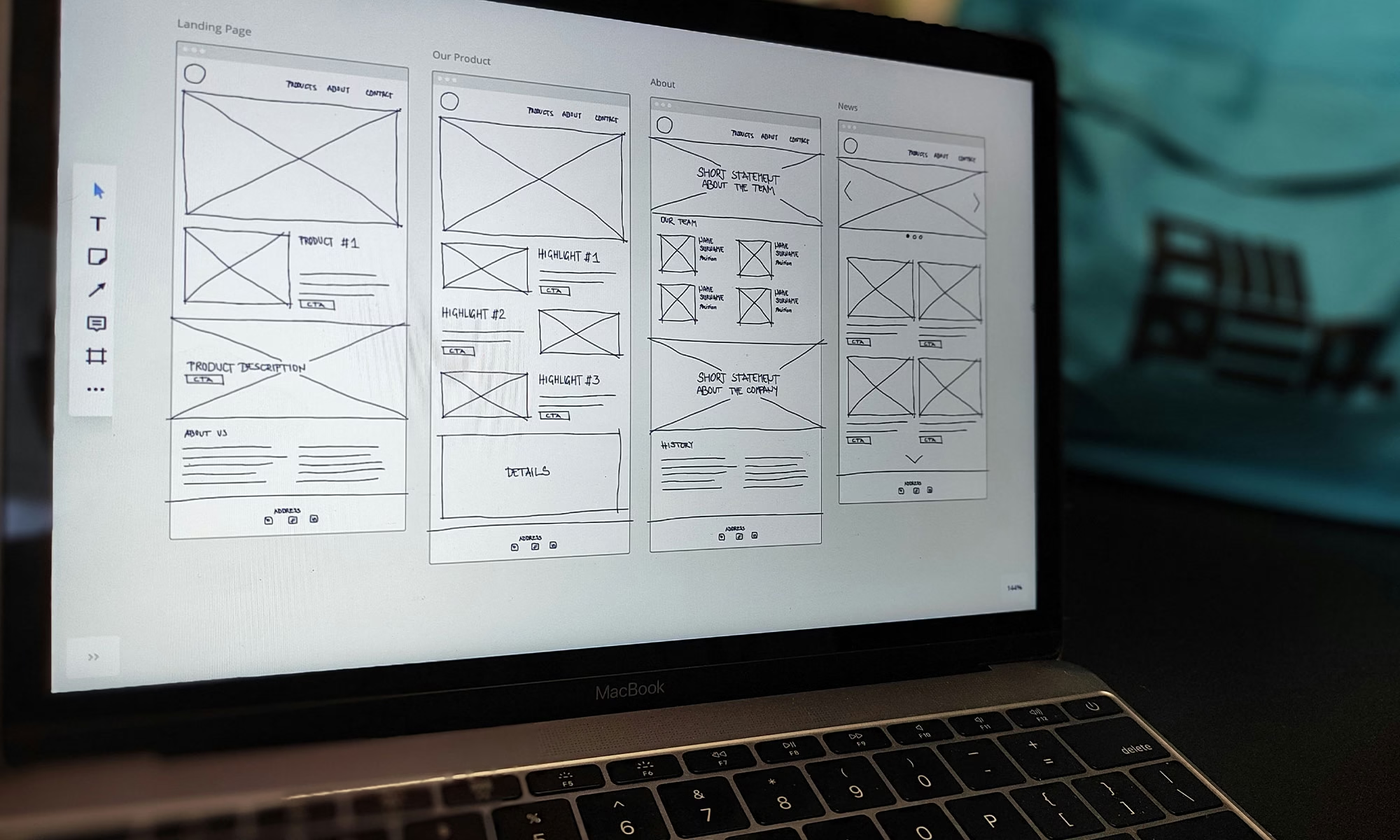Introduction: Your Website Is Not Just a Brochure — It’s Your Best Salesperson
If you’re an entrepreneur or small business owner, chances are you’ve poured your heart into your product or service. But when it comes to your website? It may not be working as hard as it should.
The truth is, your website isn’t just a digital business card. It’s your 24/7 salesperson, your first impression, and often the deciding factor for whether someone clicks away or books you. And the good news? You don’t need to be techy to create a website that converts.
In this non-techy guide, we’ll walk you through the exact steps we use at Nouvela Design Studio to create stunning, strategic websites for intentional entrepreneurs who are ready to grow online.

Why Website Design Matters More Than Ever
First Impressions Are (Still) Everything
Users form an opinion about your website in 0.05 seconds. That’s faster than a blink. If your site doesn’t feel clear, credible, and professional, you risk losing trust instantly.
A Website That Converts = More Than Just Pretty
A beautiful site alone won’t sell. It needs:
- Purpose-driven layout
- Clear calls-to-action
- Easy navigation
- Compelling copy
- Fast loading times
Your Audience Wants Instant Clarity
Your visitor should land on your site and instantly understand:
- What you offer
- Who it’s for
- Why it matters to them
- What to do next
Step 1: Get Clear on Your Website’s Goal
Before you start designing, ask: What is the ONE main action you want users to take?
Examples:
- Book a discovery call
- Purchase a product
- Fill out a form
- Subscribe to a newsletter
All your design decisions should guide users toward this goal.
Step 2: Map Out a Simple, Strategic Structure
Keep it easy to navigate. Here’s a tried-and-tested page flow for service-based businesses:
- Home — Clear intro, value proposition, and CTAs
- About — Your story, values, mission, and approach
- Services — Break down each offer clearly
- Portfolio or Case Studies — Social proof through visuals or stories
- Contact — Form, email, booking calendar, or phone info
- Blog (optional) — For SEO and authority
Step 3: Write Magnetic Website Copy (Even If You’re Not a Writer)
You don’t need to sound clever. You need to be clear and human. Follow this simple copywriting formula for each page:
- Headline: What do you do, and for whom?
Example: “Branding and Websites for Heart-Led Entrepreneurs”
- Pain Point: What problem are you solving?
“Struggling to look professional online? Confused about where to begin?”
- Solution/Benefit: How do you help?
“At Nouvela, we design websites that do more than look pretty — they guide, sell, and convert.”
- Call-to-Action (CTA)
“Let’s build your dream site. Book a free discovery call.”
Step 4: Design With Intention, Not Just Aesthetics
Yes, we love beauty. But beautiful design should be strategic.
Essential Website Design Principles:
- Visual Hierarchy: Use size, color, and placement to draw attention to what matters most.
- Whitespace: Give your content room to breathe. It improves readability and focus.
- Consistency: Use the same fonts, colors, and button styles throughout.
- Mobile Optimization: More than 60% of traffic is mobile. Test your site on all devices.
Pro Tip: Think Like a Visitor
Ask yourself: “If I were my ideal client, would I know what to do here?”
Step 5: Choose the Right Platform for You
You don’t need to code. Here are beginner-friendly (but pro-level) platforms we recommend at Nouvela:
For Service-Based Entrepreneurs:
- Showit — Highly customizable, drag-and-drop, stunning templates
- Squarespace — Great balance of ease and design polish
- Webflow — More advanced but great for long-term scalability
For E-Commerce:
- Shopify — Ideal for selling products
- WooCommerce (on WordPress) — Flexible but requires more setup
For Booking/Calendars:
- Integrate with Calendly, Acuity, or TidyCal
Step 6: Use High-Quality Brand Photos
Strong imagery increases trust. If a full brand shoot isn’t in budget yet, try this:
- Use natural light
- Avoid busy backgrounds
- Show your face! People connect with people
- Mix wide, medium, and close-up shots
Want to level up? At Nouvela, we offer branding photography packages that align with your brand identity.
Step 7: Install the Basics to Track and Grow
Even a non-techy site needs the basics:
- Google Analytics: To see what pages people visit and how long they stay
- SEO Tools: Use keywords in titles, meta descriptions, and image alt text
- Newsletter Signup: Build your email list from Day 1
- Security & Speed Plugins (for WordPress)
Step 8: Test, Tweak, and Trust the Process
Your website isn’t a one-and-done project. It evolves with you.
What to Check:
- Are CTAs clear and visible?
- Are links working?
- Does the homepage clearly state who you are and what you offer?
After Launch:
- Use heatmaps (e.g., Hotjar) to see how users behave
- Collect testimonials and display them
- Tweak based on what works (and what doesn’t)
Common Website Mistakes to Avoid
- Too much clutter: Simplicity sells
- No CTA above the fold: Don’t make users scroll to take action
- Low-quality images: It makes the whole site look amateur
- Too much text: Break it into digestible chunks
- Inconsistent branding: Your website should match your visual identity and voice
Final Words: Your Website Is Your Digital Home
You don’t need a complicated, flashy website. You need a website that clearly communicates your value, builds trust, and makes it easy for people to say YES.
At Nouvela Design Studio, we blend strategy with design to create websites that are not just beautiful — they’re built to grow your business.
Ready to Launch a Website That Works for You?
Whether you’re just starting out or looking to redesign an outdated site, we’re here to guide you through every step.
Let’s design your dream website.
Explore Nouvela Web Design Services | Book a Free Discovery Call

